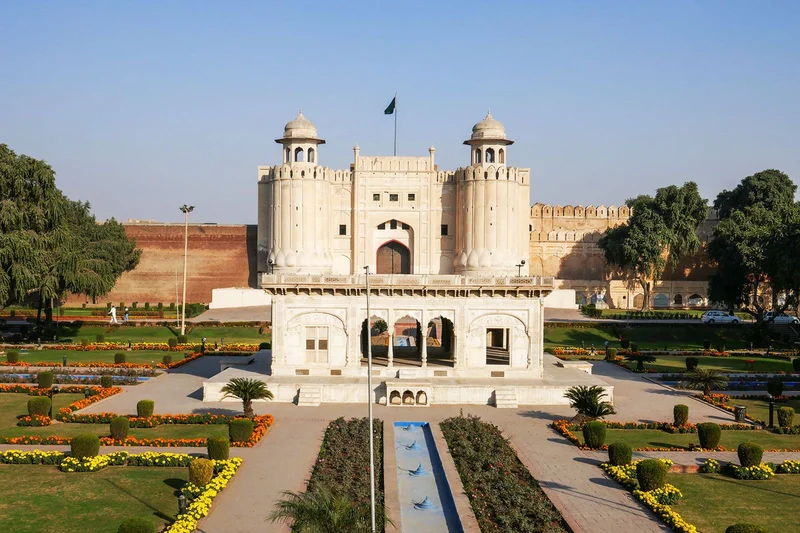Generated Title: Lahore's Paradox: Smog Machines vs. Animal Welfare—Can Tech Solve Humanity's Blind Spots?
Okay, folks, buckle up. Lahore. It's a city of contrasts, a place where ancient history slams headfirst into the bleeding edge of technology. We're seeing a real-time paradox play out there, and it's got me thinking – hard.
We've got anti-smog machines rolling through the streets, spraying ultra-fine mist to combat the killer air pollution. I mean, think about that for a second – machines making rain to clean our skies! It's straight out of a sci-fi novel, right? This is the kind of ingenuity that gets me genuinely excited. It’s a testament to human innovation, a desperate attempt to wrestle back control from the environmental mess we've created. Pakistan: Lahore attempts to tackle smog with mist machines – DW – 11
The Price of Progress?
But then… the gut punch. The reports coming out of Lahore about the pet market demolition are horrific. Animals – cats, dogs, birds – allegedly buried alive under rubble. It’s a stark reminder that technological progress, environmental initiatives, any kind of progress, can have devastating, unintended consequences if we don't keep our humanity front and center.
I saw a quote circulating: "They just wanted to live, and we failed them." Ouch. That hits hard. It's easy to get caught up in the whiz-bang of new tech, the shiny promise of solutions, but what about the ethical cost? What about the creatures, the communities, the values that get bulldozed in the name of "progress?"
Lahore isn't alone in this, of course. We see this tension everywhere – the promise of AI versus job displacement, the lure of automation versus the loss of human connection. But Lahore, right now, is a particularly vivid illustration of this core dilemma. It's like trying to fix a leaky faucet while the house is on fire. Are we so focused on the how that we're forgetting the why?
The government claims no animals were harmed, calling the reports "propaganda". But the videos… the images… they tell a different story. And that's the crux of it, isn't it? Whose story are we believing? Whose voices are we amplifying?

I remember reading about the early days of the Industrial Revolution, when factories were churning out goods at an unprecedented rate, but at what cost? Child labor, pollution, social upheaval – the benefits were undeniable, but the human toll was staggering. Are we doomed to repeat that pattern?
The futsal championship, where Lahore Police took home the trophy? It's a brief moment of normalcy, of celebration, in the midst of… well, everything else. Life goes on, even when it feels like the world is crumbling around us. But that doesn't mean we can afford to ignore the warning signs.
What I keep asking myself is: how do we reconcile these seemingly contradictory realities? How do we embrace technological solutions to environmental problems without sacrificing our compassion, our empathy, our basic decency?
Maybe the answer lies not just in smarter technology, but in wiser implementation. Maybe it's about slowing down, taking a breath, and asking ourselves, "Who benefits? Who gets left behind? And what are we willing to sacrifice in the name of progress?"
Tech Can't Replace a Moral Compass
Because here's the thing: anti-smog machines are amazing, but they're not a substitute for responsible governance, for ethical decision-making, for a fundamental respect for all living things. Technology is a tool, not a panacea. It can amplify our best intentions, but it can also magnify our worst impulses. And in Lahore, right now, we're seeing both sides of that equation in stark relief. It reminds me why I got into this field in the first place—to explore the potential of tech, but always with an eye toward its ethical implications.
So, the question isn’t just “Can technology solve the smog problem?” but “Can we, as humans, solve our own blind spots?”
A Glimpse of Hope?
Amidst the outrage, I did find one comment that gave me a sliver of hope. Someone on X (formerly Twitter) wrote, "This tragedy should be a wake-up call. We need stricter regulations, more transparency, and a fundamental shift in how we value animal life." Maybe, just maybe, this crisis will spark a deeper conversation, a more meaningful commitment to ethical progress. I hope so. Because the alternative is simply unacceptable.
